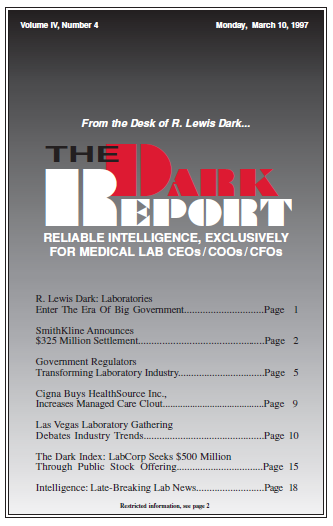CEO SUMMARY: Consolidation continues among managed care companies. Cigna’s acquisition is an effort to boost its managed care business. Healthsource’s market coverage complements areas where Cigna can use the additional market strength to negotiate more favorable contracts with providers. HEALTHCARE CONSOLIDATION continues with Cigna Corp.’s agreement to purchase Healthsource, Inc. for $1.4 billion. The acquisition …
Cigna Buys HealthSource, Inc., Increases Managed Care Clout Read More »
To access this post, you must purchase The Dark Report.


